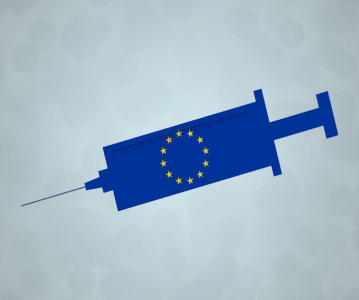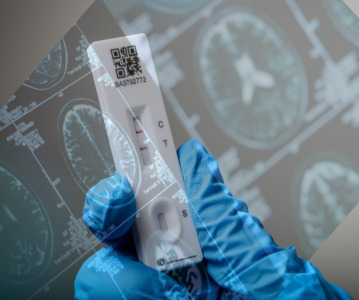TTP completes expansion of life sciences lab facility for Desktop Biology programmes

Dedicated facility developed in response to increasing demand for product development projects in diagnostics, R&D and bioprocess.
TTP has completed and moved into a new extension of their life sciences development facility. The additional multi-disciplinary suite of lab space provides a Class II bio-handling and tissue culture laboratory, and a dedicated facility for diagnostic system development under ISO 13485:2016.
The new facilities are part of an ongoing investment at TTP in dedicated space for system development programmes for life science and diagnostics companies, and a growing initiative to find biologically derived solutions for challenges in assay development and biomarker discovery. TTP has a particular focus on helping customers to develop new products in molecular and immunodiagnostics, life science R&D and bioprocess, cell-sorting, bioprinting and microfabrication.
“We have designed these facilities to address the evolving nature of the programmes we are undertaking,” said Piers Harding, Life Science Engineering Manager at TTP. “The Class II facility now allows for TTP teams to undertake assay development and functional tests of systems with disease-pertinent samples. As our biological team has grown, this is something our clients have increasingly asked for. The expansion will work hand in hand with our molecular biology and bioengineering space – increasingly we are seeing programmes make use of the nearby micro-fabrication facility we established at TTP last year.”
Giles Sanders, of Life Sciences Business Development, said: “This is part of TTP’s ongoing investment in life sciences to provide our clients with interdisciplinary insight throughout the product development pathway. Our life sciences team has nearly doubled in size in the last few years, and this has been augmented by investments in equipment and robotics as well as internal programmes targeted at developing new technologies to provide our clients with a competitive advantage in their future products. This includes not only our Desktop Biology programmes but also the development of unique cell sorting technologies and a biomolecule innovation team focusing on solutions for bacterial concentration and developing constructs for super-stable and robust antibody analogues.”
Related News
-
News Patients vs Pharma – who will the Inflation Reduction Act affect the most?
The Inflation Reduction Act brought in by the Biden administration in 2022 aims to give better and more equitable access to healthcare in the USA. However, pharma companies are now concerned about the other potential costs of such legislation. -
News CPHI Podcast Series: What does the changing US Pharma market mean for industry and patients alike?
In this week's episode of the CPHI Podcast Series Lucy Chard, Digital Editor for CPHI Online is joined by James Manser to discuss the political and market changes in the US pharma field. -
News CPHI Barcelona Annual Report illuminates industry trends for 2024
The CPHI Annual Survey comes into it’s 7th year to report on the predicted trends for 2024. Over 250 pharma executives were asked 35 questions, with their answers informing the industry landscape for the next year, spanning all major pharma marke... -
News Which 10 drugs are open to price negotiation with Medicare in the USA?
The Centres for Medicare & Medicaid Services, under the Biden administration in the USA, has released a list of the 10 drugs that will be open to price negotiations as part of the new legislation under the Inflation Reduction Act (IRA). -
News EU Medical Devices Regulation causes unintended disappearances of medical devices for children, doctors state
Doctor groups and associations have appealed to the EU to correct the EU Medical Devices Regulation law that may cause unintended shortages of essential drug and medical devices for children and rare disease patients. -
News 10 Major Drug Approvals So Far in 2023
Last year, 37 novel drugs were approved by the FDA, this was a high number for such a category, and covered many fields including oncology, demonstrating how promising further research is, and how it is only continuing to build. To date, there are alre... -
News Detecting Alzheimer's disease with a simple lateral flow test
A novel rapid diagnostic test for early-stage Alzheimer's disease has been developed using a biomarker binder from Aptamer Group along with technology from Neuro-Bio, the neurodegenerative disease experts. -
News CPHI Podcast Series: outsourcing and manufacturing trends
Listen to the CPHI Podcast Series this June to hear Gil Roth of the PBOA speak with Digital Editor Lucy Chard about the biggest trends and topics to watch in pharma outsourcing and manufacturing at the minute.
Position your company at the heart of the global Pharma industry with a CPHI Online membership
-
Your products and solutions visible to thousands of visitors within the largest Pharma marketplace
-
Generate high-quality, engaged leads for your business, all year round
-
Promote your business as the industry’s thought-leader by hosting your reports, brochures and videos within your profile
-
Your company’s profile boosted at all participating CPHI events
-
An easy-to-use platform with a detailed dashboard showing your leads and performance







